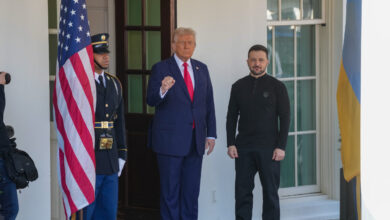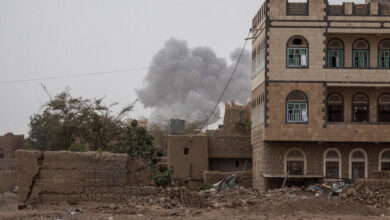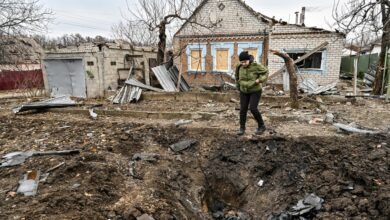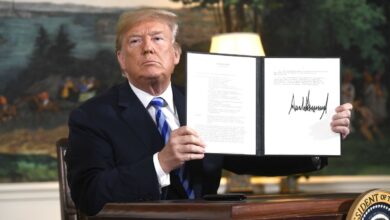
As a scholar of US counterterrorism policies and insurgent groups at American University’s School of Public Affairs, I have been closely monitoring the Houthis’ attacks on thousands of targets in Yemen and across the Saudi border, including a drone and missile strike on the Saudi Aramco oil depot in Jeddah last month.
In fact, since 2016, the Houthis have carried out more than 4,000 ballistic missile attacks on neighboring Saudi and Emirati territories, resulting in hundreds of civilian deaths and injuries.
The rebels’ access to sophisticated fixed-wing aircraft drones leads to only one state actor that enables them: Iran.

IRGC as Foreign Terrorist Organization
In 2019, the Trump administration designated Iran’s Islamic Revolutionary Guard Corps (IRGC) a foreign terrorist organization.
Following the designation, former President Donald Trump announced that the Iranian government is not only a state sponsor of terrorism but that it uses the IRGC to solidify its global terrorist campaign.
But today, Iran continues to finance and support terrorist efforts through criminal proxy networks. In 2021, Iran increased its military budget and funding for the IRGC by approximately 14 percent.
When he ran for the presidency in 2020, Joe Biden promised to re-open talks with the Iranian government to restore the 2015 nuclear deal, which placed numerous restrictions on Iran’s nuclear program in exchange for international sanctions relief.
But now, Tehran has added a cynical and dangerous new twist to the ongoing negotiations: the demand that the IRGC be removed from the Foreign Terrorist Organization List as part of the nuclear agreement.
Lifting the designation would have tragic consequences for American interests in the Middle East, including our allies in Saudi Arabia and the United Arab Emirates. It would embolden Iran and only prolong the Yemeni conflict indefinitely at great human cost.

For their part, the Saudis note that attacks such as the bombing of the Saudi Aramco refinery threaten to further elevate gas prices from their current punishingly high levels.
But this is only part of the problem — the IRGC has also trained, organized, and equipped terrorist groups to target US military personnel.
Sponsorship of Terrorism
To be clear: talks with Tehran are important and they should continue. The world needs to prevent Iran from developing nuclear capability, and Tehran desperately needs relief from international economic sanctions.
However, retaining the IRGC’s designation as a foreign terrorist organization must be non-negotiable unless Tehran publicly denounces its affiliations with Yemen Houthis and other terrorist proxies.
More importantly, the Iranian government needs to identify and communicate substantial steps in its efforts toward de-escalating the conflict in Yemen.
Meanwhile, the United States continues to pour hundreds of millions of dollars into humanitarian assistance for the people of Yemen. This year, US Secretary of State Anthony Blinken announced that approximately $585 million in humanitarian aid was given to Yemen.
Overall, the US remains one of the largest donors to the conflict in Yemen, providing nearly $4.5 billion since the war in Yemen began in 2014. But money alone will not bring peace to the Arabian Peninsula.
It is time for the Biden administration to send a clear message to Tehran that its sponsorship of terrorism is unacceptable.
 Candace Strickland (@_cstrick) is a Ph.D. student at American University’s School of Public Affairs in the Justice, Law, and Criminology Program.
Candace Strickland (@_cstrick) is a Ph.D. student at American University’s School of Public Affairs in the Justice, Law, and Criminology Program.
Her research interests focus on insurgent and terrorist groups’ behaviors, US counterterrorism policies, civil-military relations, and military defense strategies, with a regional focus on Africa and the Middle East.
The views and opinions expressed here are those of the author and do not necessarily reflect the editorial position of The Defense Post.
The Defense Post aims to publish a wide range of high-quality opinion and analysis from a diverse array of people – do you want to send us yours? Click here to submit an op-ed.











